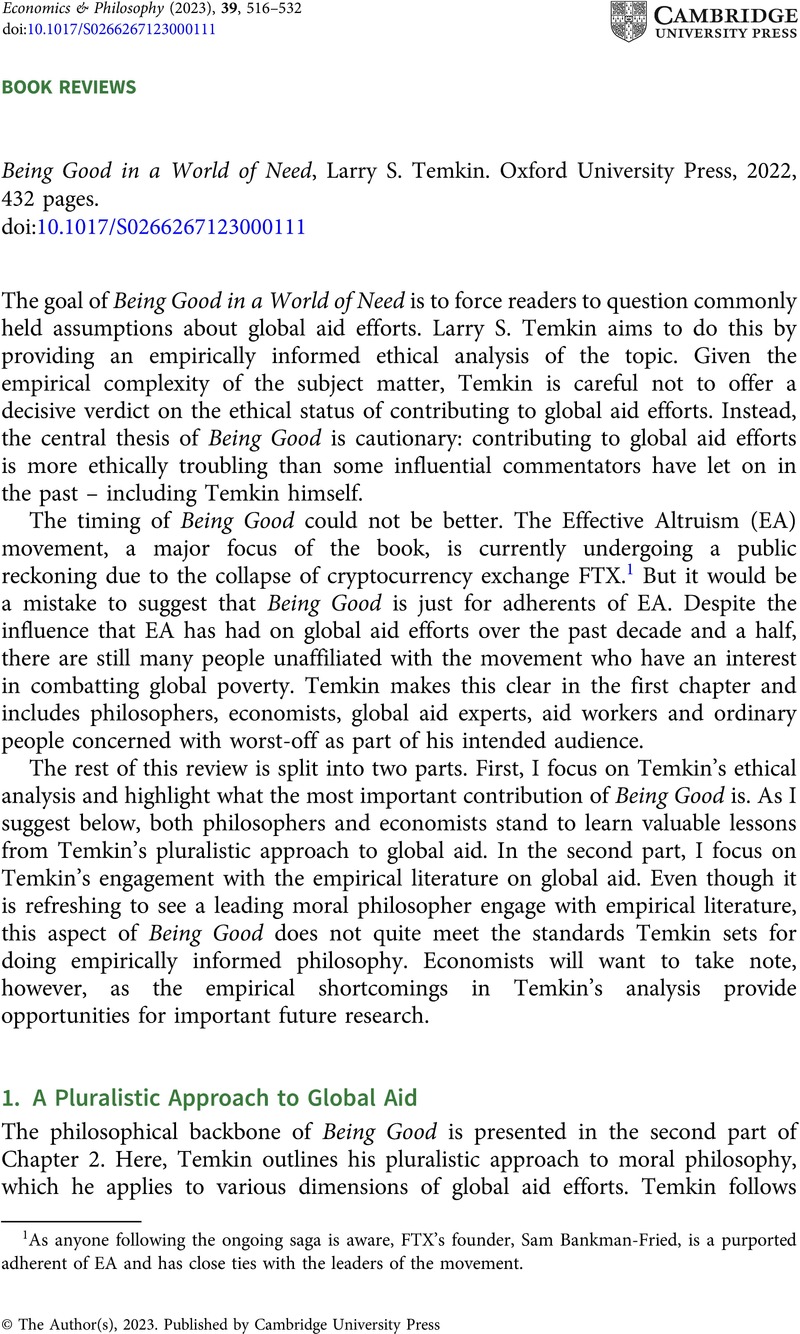Crossref Citations
This article has been cited by the following publications. This list is generated based on data provided by Crossref.
Picchio, Marcos
2024.
What is the standard of care in experimental development economics?.
Politics, Philosophy & Economics,
Vol. 23,
Issue. 2,
p.
205.




